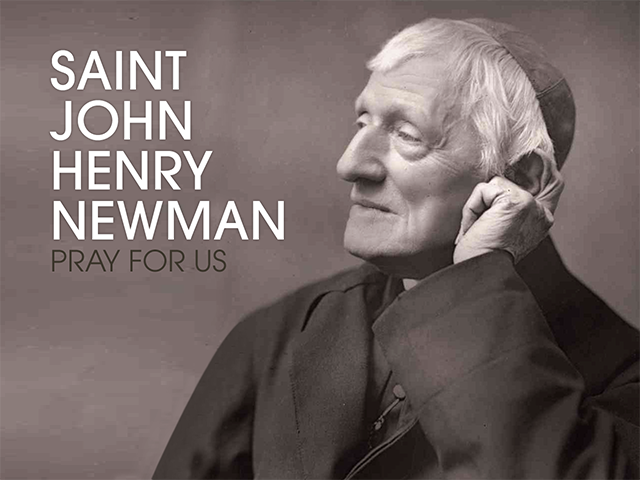



Blessed John Henry Cardinal Newman (1801–1890) was the eldest of six children born to a nominal Protestant family in London, England. As a child he loved reading the Scriptures, and experienced a conversion to Christianity at the age of 15. He became a brilliant academic, an extremely influential Oxford scholar, and an Anglican priest. He was a leader in what was called the "Oxford Movement" which argued for a revival of traditional religious practice in the Church of England. Once anti-Catholic in his religious sentiments, sentiments that were common in England, Newman was increasingly impacted by the Church Fathers and other Catholic writers. His theological views gradually aligned with the Catholic Church in opposition to Anglican doctrine. Through his continued study of Church history he became unable to remain a Protestant in good faith. He made the decision to convert to Catholicism in 1845, which exposed him to much ridicule in his academic and religious circles. Two years later he was ordained a Catholic priest in Rome, and was made Cardinal in 1879. John Henry Newman is remembered for his influential writings on theology and philosophy as well as his founding of the famous London Oratory. Newman wrote 40 books and 21,000 letters, some of which had profound influence on the Second Vatican Council, making him one of the most important theologians of his day. His most famous work is his Apologia in which he defends his conversion to the truths of the Catholic Church. His feast day is October 9th.